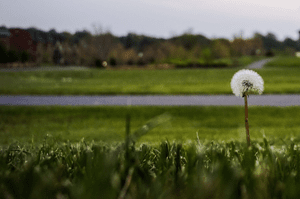 Welcome to our summer newsletter. We noticed it has been a while since we communicated with you all. In the summer of 2016 we have all witnessed tumult and violence in the political, cultural and economic arenas. As Gina said this week, “The world is on fire, and it feels like all I have is a garden hose.” From zika to Brexit to Orlando to the ongoing wars on drugs, terror, and black men, life for many of us feels distressing and disheartening. We are wandering in a daze, unsure what to do or say. Many folks we have spoken to are burying themselves in work or other numbing habits. We use any means necessary to escape feelings of what one client articulated as irritation, disgust, suspiciousness, anxiety, fatigue and overwhelm.
Welcome to our summer newsletter. We noticed it has been a while since we communicated with you all. In the summer of 2016 we have all witnessed tumult and violence in the political, cultural and economic arenas. As Gina said this week, “The world is on fire, and it feels like all I have is a garden hose.” From zika to Brexit to Orlando to the ongoing wars on drugs, terror, and black men, life for many of us feels distressing and disheartening. We are wandering in a daze, unsure what to do or say. Many folks we have spoken to are burying themselves in work or other numbing habits. We use any means necessary to escape feelings of what one client articulated as irritation, disgust, suspiciousness, anxiety, fatigue and overwhelm.
We do see a way out. Let’s start with:
- Reaching out rather than retreating.
- Asking those you see suffering with an opioid addiction, with fear for their immigration status, or for their safety in this over-amped trigger-happy environment, what can I do for you?
- Letting your neighbor, co-worker, family member and fellow commuter know that you see them and you see their suffering.
- Having the courage to stand for and with each other with the inspired certainty that our mutual liberation is bound together.
Maybe all you can do is ask: What can I do for you? And that is enough.
We assert that that until we are all free, none of us are, despite how we might have disguised this truth even from ourselves with houses, status and wealth. This is why we have declared the Laws of Enough as a place in which to stand and remember that we are all interdependent and bound in each other’s freedom.
Examining the Seven Laws of Enough
The Seven Laws of Enough is a central focus of much our writing at Seven Stones Leadership. We believe that diving into the laws and marrying them with practices such as inquiry, mindfulness, letting go and creation can guide us all through the heat of the fire of life. While we eagerly anticipate the publication of our book on the Seven Laws in 2018, we want to share with you the laws and give you a preview of the First Law.
The 7 Laws of Enough
Law 1: The Context is Decisive
Law 2: I am Enough Already
Law 3: I Belong…Period.
Law 4: It’s Already Alright
Law 5: No One Is Exempt
Law 6: Humor Is Required
Law 7: Love Is the Answer
For a free copy of the 7 Laws of Enough card, e-mail your mailing address to [email protected]
LAW #1 Context is Decisive
What do we mean by context?
Our context shapes us; we say it is decisive. It is the set of invisible forces – social, cultural, economic and environmental – that surround us, shaping our beliefs and assumptions and influencing our behavior and the narrative of our life. When we are unaware of these forces, or leave them unchecked, we become reactive to them.
Context is everywhere and in everything, yet we can’t see it, so we often miss its effect on us. Context is the structure that gives rise to the feelings, thoughts, and behaviors exhibited by those operating within that structure. Everything we think, feel, and do is actually an outgrowth of the systems within which we live and work. The ecology, the socio-economic structure, the family structures, the community structure, and the work structure all interweave to create overlapping contexts that shape how we live.
There are several layers of context operating at once in all of our lives:
- The natural eco-system in which we are all embedded
- The socio-economic-cultural-political context
- Institutional contexts like your business environment or your religious institution
- Your personal historical context; your roots as it were, including your personal family context: consisting of your roots, your socio-economic situation, your race and ethnicity, religious background, geography, your parents’ and grandparents’ life stories, sibling configuration and who raised you, etc.
- Your personal story about your current life, which is the way you made sense of all of the above and turned it into a core narrative about yourself and life in general
Some of these contexts, like our national political context, are what we would call structural contexts−outside forces that operate in our lives. We as individuals do not generate and control those contexts directly, but they have enormous influence in our lives. There are other contexts that we identify as personal contexts: those contexts where we can have the most immediate and significant influence. Ironically, the personal context is often the least obvious to us. As we seek to create the future, it is frequently this layer of context that is unbeknownst to us, fueling many of our current breakdowns and frustration in our inability to create the future we envision.
INQUIRY:
- Can you name the layers of context that define, influence, and shape your life, your worldview, your actions?
- As you look at what you have written, can you see any connections to your current breakdowns, our collective challenges and the places you feel stuck?
If not, the first step is to distinguish that which has been invisible to you so far. Once you bring these contexts out in the open, and you see how they put barriers between you and your desired future, you can begin to take action to become a context creator, rather than live in a constant state of reaction. You can shift your story and invent a personal context that will allow you to generate new ideas, new ways of being and new possibilities for action. What new context will you create for yourself?
Once you become competent in creating new contexts personally and generate new actions, you can move to supporting others. Leaders in organizations, social activists and entrepreneurs continually invent new contexts and engage teams and companies and communities to enact the vision they inspire. This kind of visioning is often called a paradigm shift. What wild, audacious new context do you want to create for the world, your community, your organization?
We at Seven Stones would like to challenge each of us to engage both personally and then extend outward to make larger structural shifts. If, for example, we are to actually shift the context of racism in the USA, we must:
- Understand how the layers of context are interacting at the individual and collective level.
- Declare a clear set of pathways in which people can engage that will allow us to actually move from one level of consciousness to another, so we can shift to a new paradigm of racial awareness and healing the wound that still bleeds so openly.
“A problem is never solved at the same level of consciousness at which it was created.” -Albert Einstein
Do you want find out more? Do you want to explore the intersection between your personal context and our collective structural contexts and how we can transform ourselves and the environments in which we exist to create a world that is both sustainable and sustaining for all? We invite you to join us in a conversation about changing the world. Email us to set up a time to talk.
In gratitude,
Jen and Gina for the Seven Stones Team



